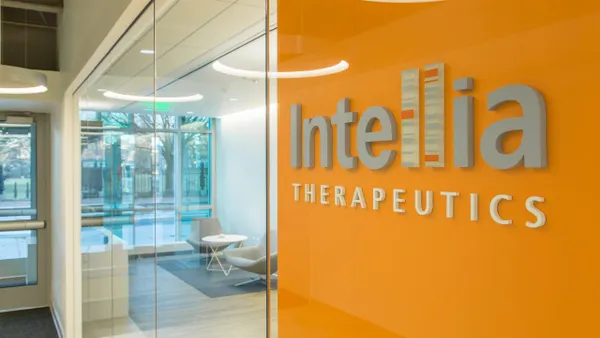Dive Brief:
- A dual-acting cancer drug developed by Akeso and Summit Therapeutics appeared to modestly improve survival compared to Merck & Co.’s widely used cancer immunotherapy Keytruda in a clinical trial, but the difference was not large enough to determine whether the treatment is clearly better.
- The drug, known as ivonescimab, received its first regulatory approval in China Friday based on a study showing it cut the risk of disease progression in half versus Keytruda in people with non-small cell lung cancer. As part of its review, China’s drugs regulator requested an interim look at survival data, which showed a 22% reduction in death risk among ivonescimab recipients that wasn’t statistically significant.
- In a statement, Summit called the difference “clinically meaningful” and noted the analysis was done before enough data were collected to draw a conclusion. However, its share price still plummeted by more than one-third, as the findings stirred doubts about the drug’s ability to improve upon Keytruda and other drugs like it. Akeso shares fell by double digits as well.
Dive Insight:
When ivonescimab unexpectedly bested Keytruda in a Phase 3 trial in China last year, a wave of investment in drugs of its kind quickly followed. The finding suggested these drugs, known as PD-1/VEGF inhibitors, might build upon Keytruda and other similar checkpoint immunotherapies that treat many cancers and regularly generate billions of dollars in annual sales. More than a dozen companies are now developing them.
While ivonescimab checked tumor growth for significantly longer than Keytruda in that trial, data on whether it could extend participants’ lives wasn’t immediately available. Ever since then, investors and Wall Street analysts have been dissecting the drug’s potential to deliver a survival benefit over Keytruda.
Akeso, which discovered ivonescimab and led the study, has said to expect a final analysis of those results later this year. However, the review by China’s regulator triggered an earlier-than-expected interim look — and immediately sank shares of the company and Summit, which holds partial rights to ivonescimab and has staked its future on the drug’s potential.
In Summit’s statement, co-CEO Robert Duggan noted how the company was “pleased” a study explicitly designed to evaluate tumor progression showed a “clinically meaningful overall survival trend” at that early check. The result indicates ivonescimab’s potential to be “the next generation” of cancer immunotherapy, he said. That claim is being put directly to the test in a trial called Harmoni-3, which is evaluating ivonescimab and chemotherapy against the Keytruda-chemo combination that’s standard of care in most lung cancers. Results are expected in 2027, according to a federal database.
Analysts were somewhat skeptical of Friday’s finding, however. Investors have looked for ivonescimab to show at least a 24% reduction in death risk, making Akeso’s result “solid, not spectacular,” wrote Cantor Fitzgerald’s Eric Schmidt.
While Leerink Partners’ Daina Graybosch wrote how it was “unrealistic” to expect ivonescimab to hit statistical significance so early in a relatively small Phase 3 study, she still found the reported survival benefit to be “modest.” PD-1/VEGF drugs may need to be paired with other therapies to be most helpful, she suggested.
Graybosch added that there’s likely to be “much debate” on whether ivonescimab’s effect on survival is truly meaningful, and whether it will grow or shrink in future data checks. Both are possible, she said, though the “rule of thumb” is that interim results in cancer studies are likely to “degrade over time.”
Last week, Akeso also announced the U.S. approval of its drug penpulimab, which, like Keytruda, is designed to target PD-1. The Food and Drug Administration has cleared its use in adult recurrent or metastatic non-keratinizing nasopharyngeal carcinoma.












